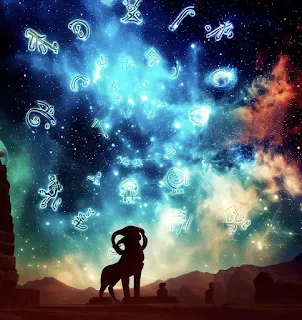Egyptian Astrology Calendar Explained
Ancient Egyptian Astrology Explained
How the Egyptian Calendar and Nile River Cycles Shaped Astrology
Unlike modern Western astrology, ancient Egyptian astrology did not use the zodiac signs we know today. Instead, it was deeply connected to the Egyptian calendar and the life-giving cycles of the Nile River.
The Egyptian calendar consisted of 12 months of 30 days, plus five extra festival days. Each month was dedicated to a specific god or goddess, and people believed that those born during a certain month inherited the traits and spiritual influence of that deity.
The 12 Months of the Ancient Egyptian Astrology Calendar
Each month carried the essence of a god or goddess:
- Thoth (Jan 1 – Jan 30) – God of wisdom, writing, and magic.
- Geb (Jan 31 – Feb 29) – God of the earth and fertility.
- Osiris (Mar 1 – Mar 30) – God of afterlife and rebirth.
- Isis (Mar 31 – Apr 29) – Goddess of magic, healing, and motherhood.
- Amun (Apr 30 – May 29) – King of the gods, symbol of creation.
- Hathor (May 30 – Jun 28) – Goddess of love, joy, and beauty.
- Ptah (Jun 29 – Jul 28) – Creator god and patron of artisans.
- Sekhmet (Jul 29 – Aug 27) – Lioness goddess of war and healing.
- Bastet (Aug 28 – Sep 26) – Protector goddess of home and fertility.
- Ma’at (Sep 27 – Oct 26) – Goddess of truth, justice, and cosmic order.
- Horus (Oct 27 – Nov 25) – Sky god, symbol of kingship and vision.
- Anubis (Nov 26 – Dec 25) – God of embalming and protector of the dead.
Astrology, Religion, and the Nile
The flooding of the Nile marked the agricultural new year and heavily influenced astrological practice. Priests and astrologers believed the gods guided these natural cycles and could predict good harvests or droughts.
How Astrology Guided Ancient Egypt
Astrology in Egypt wasn’t about sun signs — it was a religious and state tool. Priests, seen as mediators between gods and humans, interpreted the stars and birth months to:
- Guide pharaohs on military campaigns, temple construction, and diplomacy.
- Choose favorable dates for ceremonies, farming, and festivals.
- Offer personal readings to help individuals understand strengths and destiny.
Astrological readings were tailored to a person’s birth month deity, offering guidance on character, luck, and life path. These rituals often involved offerings, prayers, and temple ceremonies to honor one’s ruling god or goddess.
Egyptian Astrology’s Legacy
Over millennia, Egyptian astrology evolved, absorbing elements from Greek and Roman astrology. Yet its core — the idea that birth dates link humans to divine powers — influenced how people saw fate and identity long before Western zodiac signs were developed.
Curious about other African spiritual traditions? Explore:

